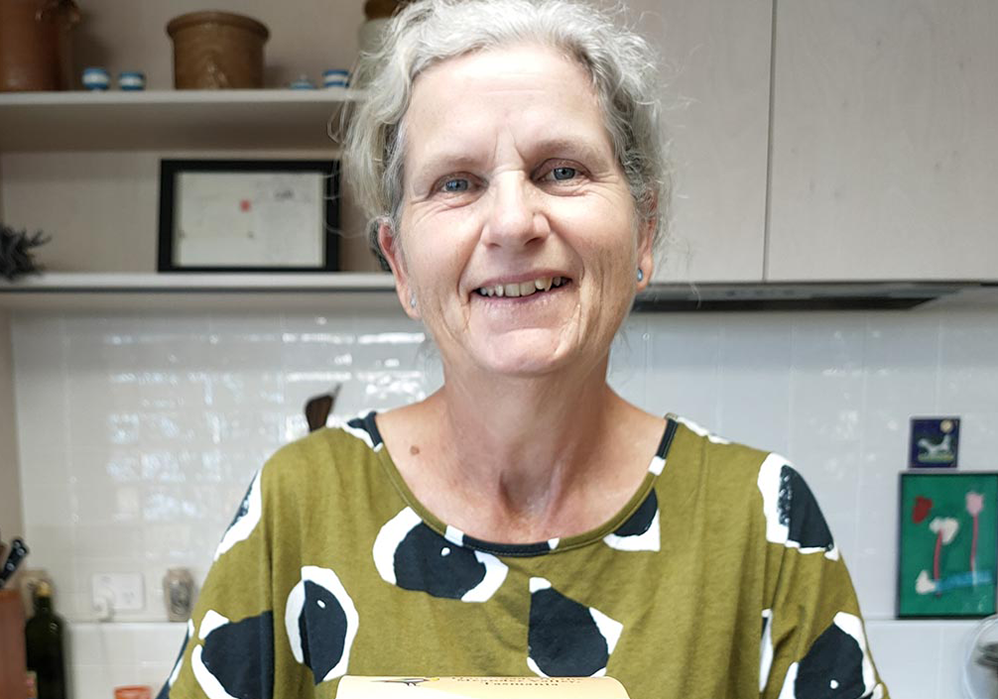New grant to boost women entrepreneurs in the Tasmanian agri-food industry


Around a crowded table in North-West Tasmania, a group of women are animatedly discussing the pros and cons of cheese packaging. Will the cheese travel well? How can we get the product into Woollies? How can it sit proudly on the shelves?
It is one of several workshops - as part of ‘Seedlab Sisters Cradle Coast’ run by Seedlab Tasmania - that have recently been bolstered by a $180,000 grant from the Tasmanian government with the aim of encouraging more female entrepreneurs in the agri-food industry.
Professor Robyn Eversole, from the Centre for Social Impact Swinburne and Director of the RegionxLink program, is leading the project and will evaluate its impact.
Creating pathways into the agri-food sector
“The funding is about creating visible pathways to encourage more women into the agri-food sector and to help bring their ideas to market. We know that women in our region have many incredible business ideas and we want to nurture that,” says Robyn.
Each Seedlab Bootcamp Program will run over 5-6 weeks, hosting about 30 participants from North-West Tasmania, a region well known for its diverse horticulture and speciality produce, such as cheese, wine, herbs, pork and chocolate.
There are also five workshops in 2022 which will be led by experienced entrepreneurs, with the aim of inspiring and connecting the women participants, giving them the tools to develop their ideas and a network of support.
Sally McCreath, a Tasmanian business owner and recent participant in Seedlab’s Bootcamp Program, which was delivered live and online last year, said that while she’d been involved in agriculture all her life, she found that it was still a very male-dominated industry.
“When the conversation turned to farming, I often felt like an invisible person.”
Robyn agrees: “The stats will tell you that about 70% of businesses Australia-wide are started by men and 30% by women. So it’s not very equitable.
“And then in rural areas, you have a whole other layer of barriers. There’s not as many people to bump into in your networks and the culture is still a little more traditional.”
Sally says that the program gave her the confidence and opportunity to build and scale her idea from a kitchen concept to a traditional baked goods oatcake business, Shelduck Farm Oatcakes. She now markets a range of handmade products and also runs sustainable farming and accommodation experiences at her family property in the Meander Valley.
Breaking down the barriers
Dr Hazel MacTavish-West, Founder of Seedlab Tasmania and Co-Founder of Seedlab Australia, said she was extremely excited to be a part of a program that was focused on helping women in regional Northern and North-Western Tasmania to be more than they ever thought they could be.
“Women are problem solvers. They are time jugglers. They are extremely agile, resilient and imaginative. These are all the aspects that can contribute to people becoming successful in business,” says Hazel.
Cultural, financial and time obstacles have also prevented more women from starting up businesses.
“There is a strong culture that women organise their careers around caring responsibilities. And I see this is as particularly strong in Tasmania, compared with other places that I’ve lived in Australia and around the world. There’s a feeling that if you want to do something, you have to work it around school pick ups because there’s the assumption that the woman is still doing a lot of these things,” says Robyn.
“The other obstacle that came up very strongly in the research was confidence, this feeling that ‘I’m not confident enough. I’m not willing to sell myself enough. I don’t put myself out there enough,’ but when I put my anthropology lens on, it’s because no one has ever told you youcould’.”
Sally, from Shelduck Farm, agrees: “I lacked the confidence. That’s where Seedlab Sisters come in. They are empowering women to elbow their way in.
“It was about being brave enough to push an idea and take it forward. They armed with me with the tools and knowledge.”
A growing interest
More than 65% of the businesses who have taken part in Seedlab Tasmania over the last two years were totally, or significantly and equally, founded by women. This number has increased to 71% within Seedlab Australia.
Robyn says that although there was a growing interest in women’s entrepreneurship, there were very few organisations working at a community level to build capability and inspire women to an economic future in agri-food.
“Change needs to come at a community level and the visibility of women in this space is, I think, the most powerful thing.”
“We know what works. We know that it’s about local capability, local leadership and networks to create an enabling environment for women to make their ideas happen.”
